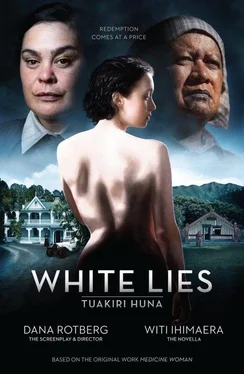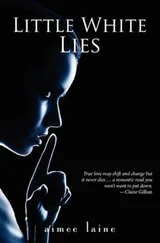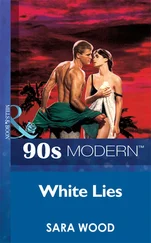Of course she will have to throw it back into the sea — first fish to Tangaroa — but the thought of a fish for breakfast is enticing. She leaves her tent to get some driftwood together for a fire to boil water for her manuka tea. She puts a skillet on the flames so it will be ready for Tiaki’s catch.
As she is ranging along the beach, with the surf rolling in, she sees an old koroua sitting on a log in the middle of a vast expanse of sand. His trousers are rolled up as if he has just come out of the surf. He is smiling at her and waving to her as if he knows her.
When she sees him, Paraiti’s heart bursts with pain and love. She drops her driftwood and runs towards him like a young girl. When she gets nearer, he motions her to sit down next to him.
‘Hello, daughter,’ Te Teira says. ‘Isn’t it a lovely morning?’
Paraiti smiles at him. ‘Yes, Dad.’
He closes his eyes and sniffs the sea air. ‘Mmm, kei te whiti te ra, such a day brings back so many memories, daughter.’ He looks at Paraiti again, and she can feel herself drowning in his eyes, irradiated with his love. ‘You always had good hands, daughter. They can save lives and they can heal people. You know what you have to do.’
Then he is gone.
After breakfast, Paraiti talks to her animals. ‘Well, Tiaki, Ataahua and Kaihe, I know you like to visit kin at Tikitiki, Tokomaru Bay, Tolaga Bay and Whangara, but we have to cancel our travels. Maybe we’ll go to Ngati Porou another day. Instead, we are going straight home.’
The animals simply look at her with puzzled expressions. So, what are we waiting for, mistress?
Paraiti puts on her wide-brimmed hat. She packs the saddlebags, says a karakia on the beach and sprinkles sea water over her head and those of her animals. She taps Ataahua on his knees and mounts him.
It will be a long, hard ride. She wants to send a telegram from Opotiki and be at the Waioeka Gorge by nightfall. Although she is reluctant to negotiate the gorge during the day — Pakeha are dynamiting the road where the rock is resistant — she wants to reach Gisborne in two days’ time.
Better get a move on.
‘Me hoki matou ki te wa kainga,’ she orders.
The waves thunder and spray around her as she rides along the beach with her animals and then heads inland.
Rebecca Vickers waits upstairs in the bedroom of her home on Waterside Drive.
She is smouldering with irritation. Yesterday, Maraea brought news that the Maori medicine woman, Paraiti, had telegraphed from Opotiki to say that she was returning to Gisborne. The message had read: ‘We have a matter of mutual benefit to discuss.’
‘What are you up to, Scarface?’ Rebecca Vickers mutters to herself as she lights a cigarette. ‘How presumptuous of you to think you have the upper hand.’ Nevertheless, an appointment has been arranged for this evening.
She wears her auburn hair unpinned. She is dressed in a long black robe striped with crimson. Her pregnancy is now clearly showing; her backbone has curved to make space for the baby, and all the other organs have found their places around the whare tangata.
Puffing at the cigarette, she looks out the window. The gardener is working but stops for moment to stretch his back, sees her and quickly goes back to work. ‘As well you should,’ she says under her breath. ‘I will not pay people who shirk their duties.’
The day is already beginning to wane. Rebecca Vickers switches on a reading lamp and rings the bell for Maraea. ‘Where’s the copy of the Tatler ? Bring it to me.’ When Maraea returns with the magazine, Mrs Vickers stubs out her cigarette and flicks quickly through the pages before pausing at a full-page photograph of Merle Oberon: rich black hair, high noble forehead, exquisite cheekbones, long neck and skin of unsurpassed whiteness. When she was recently in London, Rebecca Vickers had seen the young film actress in her latest role as Anne Boleyn in The Private Life of Henry VIII ; she had been entranced by that flawless face filling the huge darkness. It is on Merle Oberon’s looks, style and manners that she has modelled her own image.
Rebecca Vickers ponders her predicament. Merle Oberon has the world at her feet, but she? In a growing temper she closes the magazine. She is not about to throw away the future for a mere indiscretion, an adulterous affair during her stay in England. But her lover had excited her in a way her elderly husband had never managed to do. Why should she not take some pleasure for herself?
However, it had come to this: an unwanted pregnancy.
Oh, when she had discovered her condition she certainly considered pretending to St John Vickers that the baby was his. She suspected he would have been delighted to have fathered an heir at his advanced age. Indeed, he had been besotted by her ever since he’d met her in Christchurch ten years before. She had been recently widowed — her first husband was Reginald Chichester, a fairly prosperous shipping agent who had died in a dockside accident at Lyttelton. Already passing as white, she had fooled him, too, with her white skin. But Chichester had been a spendthrift, and Rebecca, fallen on hard times, was obliged after his death to work as a hostess at a well-known cabaret frequented by high-spending gentlemen. St John Vickers, already a notable politician, was entranced by her beauty and sad widowhood and set out to woo her.
As she picks up her hand mirror and looks at her reflection, turning her head this way and that, she catches a hint of darkness in her complexion that a recent application of acid nitrate has not covered.
‘Why,’ she says, astonished, caressing the blemish, ‘there you are, Ripeka.’
She has come a long way from the kainga she left when she was twelve years old. She had never been as dark as her friends, and her features had always been aquiline. In India she would have been called Eurasian, in Latin America mulatto; her beauty would have given her a special status at a quadroon ball in antebellum New Orleans.
But Rebecca Vickers had wanted more than that — she had wanted to cross the colour bar.
As many other women who lacked status and money had done before her, she perfected her masquerade and used her youthful sexuality to rise within Pakeha society. Through two marriages, she gained entry to its most gracious houses, something she would not have obtained by pedigree. And as Mrs Rebecca Vickers, travelling to and from New Zealand, she has finally obliterated all traces of the young Maori girl she once was.
She frowns at the blemish, rubbing it with her left hand so vigorously that the skin reddens. ‘No,’ she says to her reflection, ‘you can never have a child, can you, Ripeka darling, because if you do it may look like you …’ — she stares into the mirror again — ‘… and not like me.’
The risk is too great.
Suddenly Rebecca Vickers hears footsteps and she sees Maraea appear in the hand mirror.
‘Scarface has arrived. She is waiting for you in the living room.’

Paraiti is unprepared for Mrs Vickers’ appearance. One month on, pregnancy has given her a transcendent, astonishing beauty. In her black and crimson robe, she looks gorgeous and shimmering, newly emergent in dark shedded skin.
‘You said you had a matter of mutual benefit to discuss with me,’ Mrs Vickers snaps. ‘If you’ve come to gloat, you can get out now.’
Exhausted from her journey — she has not detoured to Waituhi, and her animals are tied up three streets away — Paraiti takes the upper hand. ‘You want something from me,’ she says, ‘and if you agree to my terms, I will do it. It is too late for an abortion now. But I can begin to bring on the birth of your baby. I can start the procedure tonight if you wish, so that it will come ahead of its time.’
Читать дальше













